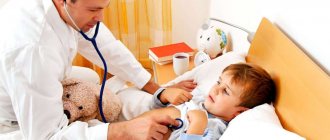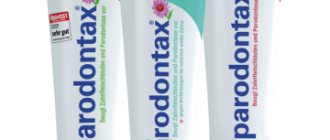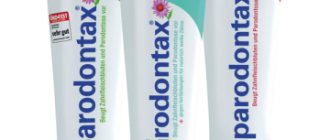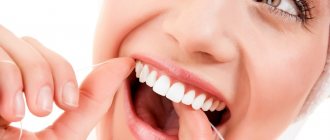Reasons for the development of stomatitis
The causes of damage to the oral mucosa may be:
- Infection (viruses, bacteria, fungal microflora)
- Allergy
- Weakening of the immune system
- Unbalanced diet
- Some diseases (ENT diseases, diabetes mellitus, anemia, gastrointestinal diseases)
- Microtraumas, burns and other damage to the oral mucosa
- Failure to comply with personal hygiene rules
- Taking medications
- Hormonal imbalances
- Smoking (“nicotine stomatitis”)
- Genetic predisposition
Symptoms of stomatitis
Despite the multiplicity of causes, the symptoms of stomatitis are usually similar:
- Pain and discomfort in the mouth that worsens while eating or talking
- Redness of areas of the mucous membrane, their swelling
- The appearance of painful red ulcers with a whitish center on the mucous membrane
- Increased salivation
- Bad breath
- Bleeding gums
- During the acute phase, there may be an increase in body temperature and enlargement of regional lymph nodes
The importance of nutrition during stomatitis
Proper nutrition for stomatitis not only helps speed up recovery, but can also prevent relapse of the disease.
In addition, if the oral mucosa is damaged, almost any food and drink causes severe pain.
This can cause fear of eating and even refusal to eat, which is completely unacceptable. Therefore, it is necessary to eat with stomatitis according to certain rules.
The duration of such a gentle diet is determined by the doctor based on the form and severity of the disease.
Why can’t stomatitis be treated without the participation of a doctor?
Of course, the use of medicinal ointments and preparations, special lotions and rinses for the oral cavity does not require hospital conditions and strict supervision by doctors. Indeed, you can heal yourself.
However, your decisions and actions should always be in consultation with your healthcare provider. Do not take any action or purchase medications yourself.
One careless mistake can lead to a complicated course of the disease and an increase in the inflammatory process!
How to eat with stomatitis
The task of nutrition for stomatitis is to provide the body with all the necessary nutrients, as well as to protect the mucous membrane from irritation as much as possible.
Frequent split meals (5-6 times a day) are recommended. Food must be crushed as much as possible, preferably to a puree state. The temperature of the dishes is 35-40 degrees.
After eating, the mouth must be rinsed with an antiseptic solution prescribed by a doctor or simply with boiled water.
For stomatitis, it is important to drink enough liquid at a comfortable temperature (close to body temperature).
Any degree of dehydration of the body should not be allowed, as this makes the mucous membranes even more vulnerable to inflammation.
General diet rules
A special feature of the diet for this oral disease should be food that is as neutral as possible and does not irritate the mucous membranes. It should be well crushed and have an enveloping and slimy consistency.
When organizing meals for a baby with this disease:
- It is necessary to adhere to small, frequent meals. Portions should be small, and the frequency of intake should be five or six times a day. It will be easier for the baby to eat a small portion, and it will be easier for parents to feed him.
- All food should be crushed as much as possible, and the consistency should resemble puree. Meat and fish are used only in the form of minced meat. The temperature of the food should not be higher than forty degrees, neither hot nor cold.
- Before eating, you can treat the child’s oral mucosa with products containing painkillers. You can use: Kamistad, Kalgel, Cholisal. Also, for pain relief before eating, you can give your baby Ibuprofen or Paracetamol. They will numb the mucous membrane in the mouth. You can safely feed your baby.
- After eating, be sure to rinse your mouth with water at room temperature. Then the mucous membrane is treated. For this, any disinfectant solutions are used (Furacillin, Chlorhexidine, Stomatofit, Miramistin). To do this, you can use decoctions of chamomile or sage herbs. This is done in order to disinfect the lesions and prevent the development of a secondary infectious process.
- It is necessary to apply oils to the mucous membrane that have the ability to activate reparation (recovery) processes.
It is impossible to cope with the disease with diet alone; it must be treated.
Menu for stomatitis
Chopped products should be made from meat: meatballs, meatballs, soufflé, pate. It is good to boil the cereals, giving preference to slimy porridges (oatmeal, rice).
It is better to use cottage cheese in the form of casseroles, and make puree from vegetables.
If you have stomatitis, you should not eat sour vegetables and fruits:
- Citrus
- Green apples
- Tomatoes
- Currant
- Sorrel
- Spinach
The menu should contain a minimum of sweets, and chocolate, sweets, and sweet carbonated drinks are completely excluded.
Simple carbohydrates (sugars) are an ideal environment for the development of bacteria in the oral cavity, so their consumption can worsen the condition and significantly interfere with treatment.
You cannot use coffee, alcohol, or add spices to food. Everything sour, spicy, salty, pickled and smoked is excluded from the diet.
All this irritates the mucous membrane and provokes the appearance of new ulcerations.
For the same reason, you should not eat hard, rough foods: stale bread, fresh hard vegetables and fruits, crackers, waffles and more.
List of recommended products and dishes
- Cream soups and broths
- Minced lean meat (chicken, turkey, beef, rabbit)
- Liver (as pate or soufflé)
- Fish, incl. 1-2 times a week fatty varieties
- Milk and fermented milk drinks
- Cottage cheese, soft cheese
- Unrefined vegetable oils (linseed, olive, corn)
- Various cereals in the form of liquid viscous porridges
- Non-acidic stewed or boiled vegetables, purees from them (cabbage, broccoli, pumpkin, potatoes, zucchini, carrots)
- Non-acidic soft fruits and berries (banana, baked apple, watermelon, melon)
- Compotes, fruit drinks, natural juices from non-acidic vegetables and fruits, jelly
Sample menu for the day
A sample menu is presented to help you understand what to feed your baby.
| Eating | Dishes |
| Breakfast | 1. Sweet oatmeal with milk and butter.2. Raspberry jelly. |
| Lunch | 1. Curd casserole with jam.2. Rose hip decoction. |
| Dinner | 1. Potato puree soup with meat broth.2. Steamed fish cutlet with zucchini puree.3. Dried fruits compote. |
| Afternoon snack | 1. Pudding with fruit puree |
| Dinner | 2. Chicken soufflé with stewed cabbage.3. A glass of Varentz. |
Food should be varied, dishes should not be repeated for at least seven days. Its task is not only to nourish the child in a gentle manner during the period of exacerbation of stomatitis, it should help strengthen the immune system and the body’s defenses.
Diso Nutrimun for stomatitis
Nutrimun protein mixture for stomatitis will be an excellent additional source of complete, easily digestible protein.
Nutrimun is easily mixed into dishes of any consistency, enriching them with protein of the highest biological value.
With Nutrimun, the body will receive the right amount of protein even in small amounts of food or drinks.
This is especially true for stomatitis, when frequent and split meals are indicated, and appetite is reduced due to pain in the mouth.
What is Nutrimun
SBKS Diso Nutrimun are concentrated milk proteins, easy to digest and complete in amino acid composition.
The mixture has virtually no taste or smell, so your favorite dishes will not change their usual characteristics.
With the addition of Nutrimun, the dish is enriched with healthy, easily digestible protein, necessary for the body to function and successfully fight diseases.
How does he help?
Diso Nutrimun is 5 grams of protein per scoop, it was developed by scientists and recommended by doctors for constant use.
You can add it to any dish: soups, broths, purees, soufflés, porridges, etc. You can stir Nutrimun in drinks: tea, compote, jelly.
Nutrimun is a specialized food product that increases and improves the protein part of the diet.
It contains all the amino acids necessary for the body in the correct ratio to each other for better absorption and greater benefits.
The protein of the Diso Nutrimun mixture is not only complete and balanced in amino acid composition, it is easily broken down in the digestive tract and is easily absorbed by the body.
Nutrition in the fight against cancer
The diagnosis of cancer is no longer a death sentence. Modern treatment is more successful than what it was 20-30 years ago.
Oncological diseases are accompanied by many changes in the human body. These changes may be the body's response to the tumor and the side effects of drug treatment. In addition, side effects of treatment, such as nausea or changes in taste, often cause loss of appetite or inability to eat enough food. In this regard, products for oncology must be carefully selected and, in some cases, prepared in a special way.
Cancer patients face the problem of not being able to eat enough food to meet the nutritional needs of the body, which leads to weight loss.
Most often, weight loss is a consequence of lack of appetite and/or a side effect of treatment.
In overcoming cancer, the main goal is to maintain an adequate weight and consume healthy foods that provide the body with calories and nutrients.
Eating a balanced diet that includes essential foods before, during and after treatment will help you feel better and recover better. This explains why it is important to eat only healthy foods if you have cancer.
Insufficient intake of calories and/or nutrients such as protein, vitamins and minerals is a common problem in the nutrition of cancer patients. Protein and calories are important for providing the body with energy, fighting infection, and therefore for a speedy recovery. Your diet during chemotherapy, as well as your diet after chemotherapy, deserves utmost attention.
Specialized nutrition is specifically designed for cancer patients.
Consultation on modern specialized nutrition products can be obtained from a doctor.
In most cases, treatment of cancer is complex or includes one of the following stages - surgery, chemotherapy and radiotherapy.
During chemotherapy or radiotherapy, consumption of usual food in the same quantities may be difficult due to lack of appetite, impaired sense of taste and perception of smell.
Regular food seems less attractive to you and, as a result, you eat it less. The body no longer receives sufficient support to fight the disease. Take nutrition seriously during radiotherapy and chemotherapy: choose food that will meet the body's needs even in small quantities. Dietary problems you experienced before your diagnosis may be exacerbated by the cancer itself and intensive treatment.
Using specialized nutrition before starting any type of therapy will improve your condition, and in case of surgery, it will speed up the healing of surgical wounds and reduce the risk of postoperative complications.
Surgical intervention
- The tumor is removed surgically.
- Surgery can be combined with a course of chemotherapy or radiotherapy.
- After surgery, a recovery period is required in the hospital, and then at home.
Surgery is stressful for the entire body. The body's need for nutrients and energy increases.
The choice of food products during oncology should be adjusted. It is necessary to take increased amounts of nutrients, especially protein, which plays an important role in the recovery process, especially in wound healing and fighting infection.
Choose foods high in protein and calories (eg eggs, cheese, whole milk, nuts, poultry and fish). However, remember that even very good, complete foods can be poorly absorbed due to impaired absorption and digestion, especially after operations on the gastrointestinal tract.
An alternative or addition to your regular diet can be specialized nutrition (Nutrizon, Nutridrink, Nutridrink Compact), which ensures easy and rapid absorption of all necessary nutrients. Talk to your doctor about the specialized nutrition you need. Properly selected food products for oncology will facilitate the body’s recovery process and speed up recovery.
Radiation therapy
- X-rays and other types of radiation are used to destroy cancer cells.
- Radiotherapy can be used on its own or in combination with surgery and chemotherapy.
Radiation therapy may cause problems in eating normal foods, especially when the digestive organs are exposed to radiation. Some side effects appear: dry mouth, nausea, vomiting, diarrhea, constipation.
In some cases, side effects may contribute to loss of appetite, difficulty swallowing, and the inability to eat solid food due to the development of stomatitis and mucositis.
Modern specialized nutrition (Nutrizon, Nutridrink, Nutridrink Compact) will help solve these difficulties and provide the body with all the necessary nutrients. Talk to your doctor or dietician about how to properly manage your cancer diet during radiation therapy to ensure a speedy recovery.
Chemotherapy
- Special chemicals are used to destroy cancer cells.
- Chemotherapy is often used in combination with surgery and/or radiotherapy.
- Chemotherapy can be accompanied by side effects, the severity of which depends on the type and dose of drugs used and the condition of the body.
Although the side effects of chemotherapy vary and depend greatly on the type and dose of drugs used, side effects such as nausea, vomiting, fatigue, diarrhea, and constipation are common. In addition, some medications contribute to changes in taste sensations, which leads to a complete aversion to food.
Carrying out the prescribed course of chemotherapy in full is the basis for the success of treatment. A side effect of chemotherapy may be loss of appetite.
Reducing the amount of food consumed leads to insufficient supply of nutrients to the body. The result is weight loss or other disruptions in the functioning of the entire body, which may lead to interruption of the course of chemotherapy and, consequently, a decrease in the effectiveness of treatment. Therefore, eating regularly during chemotherapy is very important.
In some cases, eating regular food becomes insufficient to meet the daily requirement. In such cases, it is important to choose the right additional nutrition during chemotherapy. Modern specialized nutrition products (Nutrizon, Nutridrink, Nutridrink Compact) will help prevent weight loss and maintain overall nutritional status, which, in turn, will help to endure the disease and recover after difficult treatment.
If you feel that you are unable to take in adequate amounts of regular food, consult your doctor or dietitian. A properly selected diet during chemotherapy will help avoid unwanted consequences that can be caused by this method of treatment.
- Eat small meals, but often.
- Reduce the amount of liquid you drink during meals, and instead drink between meals.
- Eat at a time when you have a good appetite - some patients find that their appetite is better in the morning.
- Have something on hand that you can snack on at any time.
- Drink liquids (soup, juice) instead of solid foods.
- Choose high-calorie foods (such as nuts) to increase the supply of nutrients in a small amount of food.
- Modern specialized nutrition products - Nutridrink, Nutridrink Compact, Nutrizon - will help provide complete and balanced nutrition.
- Eat food that you think looks attractive and smells good.
- If a certain type of food tastes or smells strange, choose an alternative.
- Use marinades, sauces, mayonnaise or small amounts of seasonings to impart the desired flavor to food.
- The following will help reduce the smell of food: using a lid during cooking; using a kitchen hood; serving food at room temperature.
Food products that are usual in the diet for oncology are steamed, boiled, stewed, and for mucositis they are served pureed.
Diet
Food is taken in small portions in a warm (not hot!) form (40-50°C). Eating small, frequent meals helps overcome nausea and eases the gastrointestinal tract. Ice cream, sucking on pieces of ice and lemon also help with nausea.
Below is information about which foods can be eaten during oncology, indicating the recommended method of preparation.
Bread and flour products
Recommended: dry biscuit, soft biscuits, baby cookies, cookies soaked in milk, kefir or weak tea. Excluded: rye bread, fresh bread, pancakes, pies, pies, baked goods.
Meat and poultry
Recommended: lean meats (beef, veal, rabbit) without tendons and fascia, chicken and turkey without skin, boiled or steamed, for mucositis - pureed (cutlets, dumplings, meatballs, puree, soufflé, roll, etc.), and steamed tongue and liver. Excluded: fatty and stringy varieties of meat and poultry, fried and stewed, canned food, products with dough (dumplings, khinkali, etc.).
Fish
Recommended: low-fat types without skin, in pieces or in the form of cutlet mass, boiled or steamed, without bones (sorted). Excluded: fatty species (sturgeon, stellate sturgeon, etc.), smoked, salted, fried, stewed, fish with bones.
Eggs
Recommended: in the form of a steam omelette. Excluded: hard-boiled, fried eggs and scrambled eggs, raw egg whites.
Dairy
Recommended: children's cottage cheese, cottage cheese in dishes (casserole, puddings), yoghurts, any dairy products intended for children (in original packaging) Excluded: dairy products with high acidity, for mucositis - fatty dairy products, sharp cheeses.
Fats
Recommended: refined olive and sunflower oils added to dishes. Butter on sandwiches and in dishes should only be consumed if there is no mucositis and should not be consumed if your child is receiving asparaginase. Excluded: other fats, overcooked butter.
Cereals, pasta and legumes
Recommended: porridges cooked in milk or water - semolina, well-cooked rice, pureed buckwheat and oatmeal. Steam puddings, souffles, cutlets from ground cereals. For mucositis, exclude: millet, pearl barley, barley, buckwheat (kernel), legumes, whole pasta.
Vegetables
Recommended: beets, potatoes, carrots, cauliflower, green peas, boiled in water or steamed and pureed (mashed potatoes, soufflé); steam puddings; zucchini and pumpkin, cut into pieces, boiled. Excluded: other vegetables, salted, pickled, pickled vegetables and mushrooms, canned vegetables.
Soups
Recommended: from pureed or very finely chopped vegetables, dairy, cereal, pureed vermicelli or homemade noodles (finely chopped) with the addition of permitted vegetables; creamed milk soups, made from vegetables, from pre-cooked chicken or meat, in weak (half-and-half) broth. Season with butter and non-acidic sour cream. Excluded: strong meat, chicken, fish broth, mushroom and strong vegetable broths, borscht, cabbage soup, okroshka.
Fruits, sweet dishes and sweets
Recommended: ripe sweet fruits and berries in the form of purees, jelly, jellies, mousses, mashed compotes; baked apples (without skin); sweet dishes with whipped proteins (mousses, sambuca), jelly, jams and preserves from sweet berries and fruits, ice cream (can only be consumed if there is no mucositis, and should not be consumed if your child receives asparaginase). Excluded: raw and unripe berries and fruits (except for mashed bananas and sour apples), chocolate, halva, and ungrated dried fruits.
Sauces and spices
Recommended: milk, sour cream, egg-butter sauces. Finely chopped dill for soups, vanilla. Excluded: other sauces and hot spices. It is recommended to limit salt intake.
Beverages
Recommended: weak tea with milk or cream, weak cocoa with milk, sweet fruit and berry juices, rosehip decoction, dried fruit compote (without whole dried fruits). Specialized ready-to-use sterile nutrition Nutridrink Compact. Excluded: kvass, coffee, carbonated drinks, juices of sour berries and fruits, homemade juices.
Children have their own specific needs for energy and proteins - they are higher than those of an adult, and therefore nutrition during treatment with chemotherapy, radiotherapy or surgery will be different. During chemotherapy, the child’s need for energy and protein increases - this is due to the fact that healthy cells, also suffering from the drugs, need material for restoration. Therefore, proper nutrition is a very important part of treatment.
| Proper feeding of a child helps the child in treating and preventing the development of many serious complications, which, at times, can suspend the progress of therapy, or even completely interfere with treatment. That is why it is extremely important to include healthy foods in a child’s diet if they have cancer. Dear parents, following these dietary recommendations is the key to your child’s well-being during chemotherapy and overcoming its complications! The liquid is consumed without restrictions (unless otherwise prescribed by the doctor). However, it should be remembered that water and tea are not food. The child's diet should contain more dairy products and natural juices. “Empty” liquid should be avoided. Try to use healthy products for oncology in cooking. It is necessary to completely exclude chips, crackers, nuts and fast food restaurant food from the child’s diet. These products irritate the mucous membrane of the gastrointestinal tract and do not contain protein and other nutrients that are beneficial for the child. They can trigger mucositis! Dried fruits and nuts must be washed and heat treated, i.e. used for making compotes, pies, etc. The use of seeds is strictly prohibited - this leads to the development of stomatitis and infectious complications in the oral cavity. |
For one serving of puree, porridge, sauce, add 1-2 tbsp. spoons of specialized nutrition Nutrizon dry mixture or 50 ml of liquid mixture Nutrini, Nutrizon, Nutridrink Compact. This will help provide the child’s body with the necessary protein and energy.
If the child refuses regular food, offer formula for specialized nutrition in small portions throughout the day. The calculation of the necessary specialized nutrition during treatment with chemotherapy, radiotherapy or surgery is carried out by the doctor, taking into account the age and weight of the child, as well as his needs for energy and protein.
| If the oral mucosa is affected, it is recommended to take the nutritional mixture in the form of a drink through a pacifier or straw. For this purpose, the optimal products are Infatrini, Nutrini, Nutridrink Compact. |
For children from 0 to 12 months.
Infatrini is a liquid ready-to-use specialized mixture, 100 ml bottle.
From 1 year to 6 years
Specialized liquid ready-to-eat products called Nutrini are registered for this age group:
- Nutrini bottle 200 ml, package 0.5 l;
- Nutrini energy bottle 200 ml, package 0.5 l;
- Nutrizon dry mixture is also approved for use in children over 1 year of age.
From 6 years and older
Ready liquid:
- Nutrizon package 1 l., bottle 0.5 l;
- Nutrizon energy package 1 l., bottle 0.5 l;
- Nutridrink Compact portion pack with straw, 125 ml;
Dry:
- Nutrizon dry mix
What is specialized nutrition Nutridrink Compact?
Nutridrink Compact is a convenient, ready-to-drink food in sterile portion packaging, in the form of a high-calorie, high-protein drink, 5-7 packages of which provide the body’s daily nutritional needs. Each package contains all the necessary nutrients and is therefore suitable as food for chemotherapy, radiotherapy and surgical treatment.
- Normalizes weight and increases physical activity due to high energy saturation (2.4 kcal/ml).
- Quickly and effectively restores damaged organs and tissues, having a high protein content (14.4 g/100 ml), which is easily digestible even with digestive disorders.
- Helps improve immunity due to its balanced composition and the presence of polyunsaturated fatty acids.
- Provides complete, balanced, sterile nutrition when the usual diet is not available or supplementation is necessary.
- Taking Nutridrink Compact before, during and after treatment helps the body prepare for treatment, increases the chances of successful treatment and recovery after treatment.
How to use Nutridrink Compact?
Nutridrink Compact should be taken in small sips through a straw, slowly, for 20-30 minutes. It can be consumed chilled, which often makes its taste even more pleasant, and, most importantly, reduces pain during stomatitis.
At what age can Nutridrink Compact, Nutridrink be used?
These products can be used from 3 years of age.
At what time of day should specialized nutrition be used?
- If specialized nutrition is a 100% replacement for regular nutrition, it makes sense to consume it during your usual meal times.
- If this food serves as a supplement to your main diet, consume it between meals or as part of your regular meals.
Are there specialized foods with a neutral taste?
Liquid, ready-to-eat products in sterile packaging Infatrini, 100 ml bottle, Nutrini, Nutrini Energy, Nutrini with PV, 200 ml bottle, Nutrizon and Nutrizon Energy, 500 ml bottle, have a neutral taste and are convenient for oral use.
How long should I use specialized nutrition?
It is recommended to continue taking specialized nutrition until appetite normalizes, eating regular food becomes easier, and indicators such as the patient’s weight, total blood protein, hemoglobin, etc. stabilize. However, the duration of taking specialized nutrition should not be less than 4 weeks. Only in this case can a stable positive effect be obtained.
The combination of ready-to-use specialized products in sterile portion packaging in the diet means a variety of diets, improved treatment results, and an improved quality of life. Choose only healthy foods to eat if you have cancer.
Use in combination
Any combination of specialized products will diversify your daily diet. Calorie and protein needs vary from person to person. Adequate compensation for your needs will lead to a positive result. Diet after chemotherapy is also an integral part of the fight against the disease.
There are contraindications: age from 0 to 3 years, increased bleeding, galactosemia, intolerance to product components. Before use, you should consult a specialist.
Nutricia is a leader in the development of nutrition for cancer.










